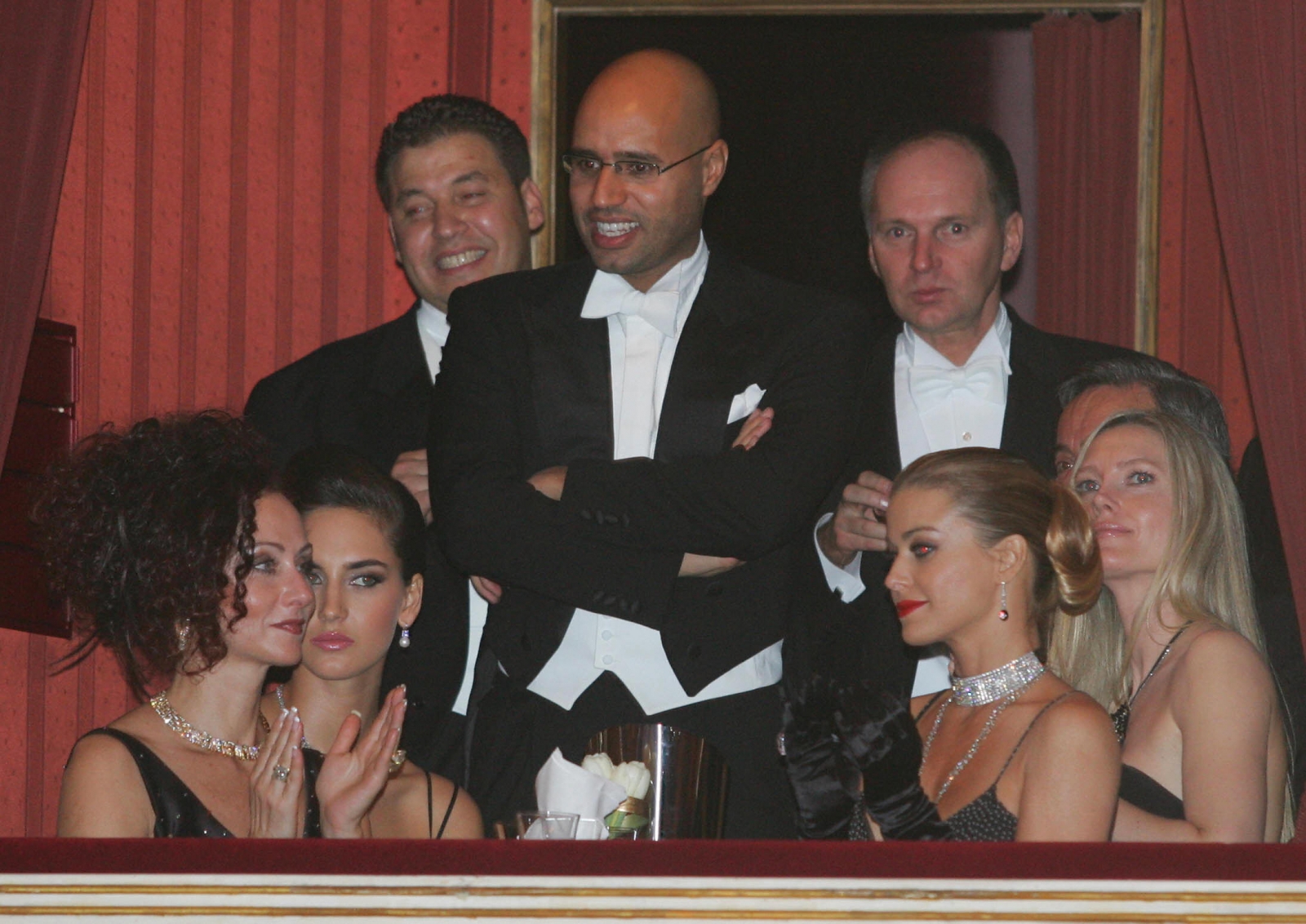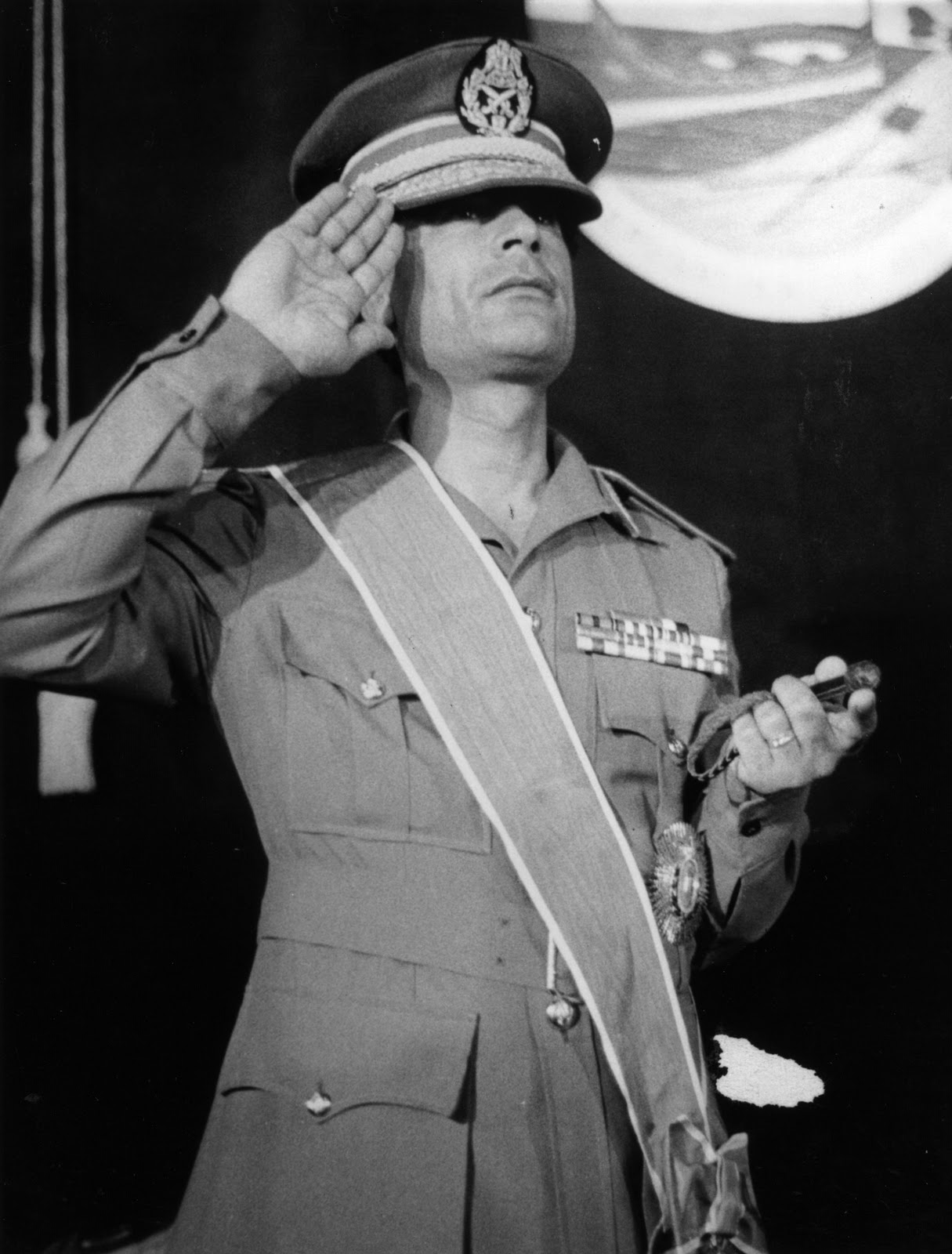Muammar Gaddafi: Libya's Controversial and Charismatic Leader For more than four decades, Muammar Gaddafi ruled Libya with an iron fist, leaving behind a complex legacy as both a ruthless dictator and a charismatic revolutionary. His eccentric personality and unorthodox policies made him one of the most controversial figures in modern history.
Editor's Notes: "Muammar Gaddafi: Libya's Controversial and Charismatic Leader" has published today date. Muammar Gaddafi’s life and his rule over Libya is an important subject to review for a better understanding of 21st-century history and current events.
Our team has done some analysis, digging information, made Muammar Gaddafi: Libya's Controversial and Charismatic Leader we put together this Muammar Gaddafi: Libya's Controversial and Charismatic Leader guide to help target audience make the right decision.
Key Differences / Key Takeaways

Saif al-Islam Gaddafi: Libya's playboy heir to Muammar Gaddafi's - Source www.ibtimes.co.uk
Transition to main article topics:
FAQ
Muammar Gaddafi was a Libyan revolutionary, politician, and military officer who served as the de facto leader of Libya from 1969 to 2011. His rule was marked by controversy and charisma, and he remains a subject of interest and debate. This FAQ addresses some of the most common questions surrounding Gaddafi's life and legacy.

Muammar al-Gaddafi - Wikiwand - Source www.wikiwand.com
Question 1: What were Gaddafi's political views and ideologies?
Gaddafi espoused a unique political philosophy that blended elements of socialism, nationalism, and Islamism, which he called the "Third Universal Theory." He rejected both communism and capitalism, and sought to establish a system of government that was based on popular participation and direct democracy.
Question 2: What were Gaddafi's main policies and accomplishments?
Gaddafi nationalized Libya's oil industry, which led to significant economic growth and improved living standards for many Libyans. He also introduced a system of universal healthcare, education, and housing, and promoted gender equality.
Question 3: Was Gaddafi a dictator?
Gaddafi's rule was authoritarian, and he suppressed political dissent and human rights. However, he also enjoyed a degree of popular support, particularly among Libya's youth and poor.
Question 4: What was Gaddafi's involvement in international affairs?
Gaddafi was a vocal critic of Western imperialism and supported various revolutionary movements around the world. He also played a role in negotiating peace agreements in Africa and the Middle East.
Question 5: What led to Gaddafi's overthrow?
Gaddafi's regime was overthrown in 2011 during the Libyan Civil War, which was part of the Arab Spring uprisings. He was killed by rebel forces in October 2011.
Question 6: What is Gaddafi's legacy?
Gaddafi's legacy is complex and contested. He is admired by some for his anti-imperialist stance and social reforms, while others condemn him for his authoritarian rule and human rights abuses. His legacy will likely continue to be debated for years to come.
Gaddafi was a complex and controversial figure who left a lasting impact on Libya and the world. His legacy continues to inspire and divide, and his life and rule remain a subject of fascination and study.
Next Article >>
Tips
Muammar Gaddafi, the former leader of Libya, was a controversial and charismatic figure. His rule was marked by both progress and repression. Here are some tips based on his life:

Muammar Gaddafi Death Photo. At This Time – No Fake ~ DIGITAL NEWS - Source digagung.blogspot.com
Tip 1: Embrace a Vision
Gaddafi had a clear vision for Libya, which he articulated through his Green Book. This vision provided a sense of direction and unity for the country.
Tip 2: Be Bold and Decisive
Gaddafi was not afraid to make bold decisions, even when they were unpopular. He nationalized oil, invested in education, and supported revolutionary movements around the world.
Tip 3: Build a Strong Network
Gaddafi cultivated relationships with world leaders and organizations, which helped him to maintain power and promote his agenda. He also built up a strong network of supporters within Libya.
Tip 4: Control the Media
Gaddafi tightly controlled the media in Libya, preventing dissent and promoting his own image. He used the media to shape public opinion and to build support for his regime.
Tip 5: Be Prepared for Opposition
Gaddafi faced significant opposition from both within Libya and from outside powers. He was able to crush dissent with the help of his security forces, but he was eventually overthrown in a civil war.
The life of Muammar Gaddafi provides some important lessons about leadership. By embracing a vision, being bold, building a strong network, controlling the media, and preparing for opposition, leaders can increase their chances of success. However, it is important to note that these tips can also be used for negative purposes, and that leaders should always strive to use their power for good.
For more information, refer to the article on Muammar Gaddafi: Libya's Controversial And Charismatic Leader.
Muammar Gaddafi: Libya's Controversial And Charismatic Leader
Muammar Gaddafi's rule over Libya for four decades was marked by a complex interplay of controversy and charisma. His policies and actions left an indelible imprint on the nation and the wider international community.
- Eccentric and Unpredictable: Gaddafi's flamboyant dress, grandiose speeches, and often bizarre behavior made him a highly visible and polarizing figure.
- Revolutionary and Visionary: His "Third International Theory" sought to create a new world order, free from Western imperialism.
- Ruthless and Suppressive: Gaddafi's regime was accused of human rights abuses and suppression of dissent, leading to international condemnation.
- Populist and Charismatic: Despite controversies, Gaddafi maintained a loyal following, particularly among the Libyan youth, due to his charismatic appeal and populist policies.
- Anti-Western and Pan-Africanist: Gaddafi was a vocal critic of the West and a strong advocate for African unity.
- Complex Legacy: Gaddafi's reign has left a complex legacy, leaving scholars and historians grappling with his paradoxical qualities and the impact of his rule on Libya.

Muammar Gaddafi Archives ⋆ Now The End Begins : Now The End Begins - Source www.nowtheendbegins.com
The interplay of these key aspects shaped Gaddafi's rule and continues to shape Libya's path in the aftermath of his downfall. His controversial policies and eccentric persona made him a global figure, while his legacy remains a subject of debate and analysis.
Muammar Gaddafi: Libya's Controversial And Charismatic Leader
Muammar Gaddafi was a Libyan revolutionary, politician, and military officer who served as the de facto leader of Libya from 1969 to 2011. He was a controversial figure, both in Libya and internationally. Some Libyans saw him as a hero who brought stability and prosperity to the country, while others saw him as a ruthless dictator who suppressed dissent and violated human rights. Gaddafi's international reputation was also mixed. He was often criticized for his support of terrorism and his authoritarian rule, but he was also praised for his efforts to promote African unity and for his role in mediating conflicts in other African countries.

Muammar Gaddafi | The Loud House Fanon Wikia | Fandom - Source theloudhousefanon.fandom.com
Gaddafi's charisma was a major factor in his ability to maintain power for so long. He was a skilled orator who could connect with people on a personal level. He was also a master of self-promotion, and he often used the media to create a larger-than-life image of himself. Gaddafi's charisma was also a major factor in his ability to attract and retain supporters. He was able to inspire loyalty in his followers, even those who disagreed with his policies.
Gaddafi's connection to the people of Libya was complex. He was both loved and feared. His supporters saw him as a strong leader who defended Libya from its enemies. His detractors saw him as a brutal dictator who suppressed dissent and violated human rights. Gaddafi's legacy is likely to be debated for many years to come.
| Positive | Negative |
|---|---|
| Brought stability and prosperity to Libya | Suppressed dissent and violated human rights |
| Promoted African unity | Supported terrorism |
| Meditated conflicts in other African countries | Authoritarian rule |